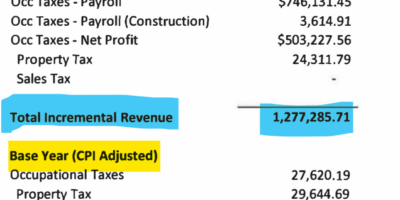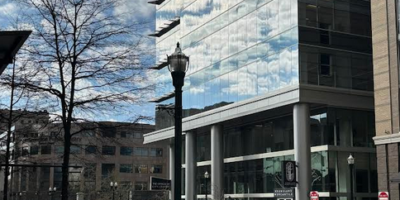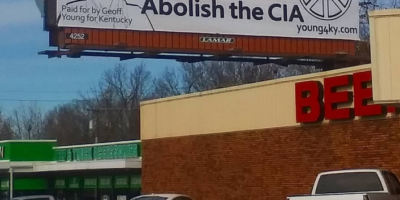By Michael Dean Benton
On March 25 the University of Kentucky community will be gathering to honor the career and influence of political philosopher Herb Reid. Coinciding with this event is the release of his new book, co-authored with Betsy Taylor, Recovering the Commons: Democracy, Place and Global Justice (University of Illinois Press, 2010).
Since the mid-70s, much of Reid’s work has revolved around a call for critical intellectuals to engage community and social justice activists’ “realities,” and to understand their challenges to power. In that call is a claim that local knowledge is important for us to consider and that academia, in particular, but also the government and other professions, need to pay attention to the lived experiences of those people in the communities being affected by social, economic and political changes.
In Recovering the Commons, Reid and Taylor link their work to important Appalachian scholars like Mary Hufford, whose research on the culture of the commons has led to the claim that we should recognize “that widespread loss of access to the geographical commons occurs in tandem with a shrinking civic ‘commons’.” This—protecting the shrinking commons—is “the work of local culture” that Wendell Berry claims is necessary to protect places from exploitation. Reid and Taylor’s book, then, looks at how that work of local culture might foster “close communities” as an alternative to unregulated globalization that solely works to extract the resources of local cultures.
Evidence of the respect for Dr. Reid is clear in the groups and people gathering in the Niles Gallery in the Little Fine Arts Building to honor him at this event. Speakers are traveling in from Moravian University, Vanderbilt, Depaul, and Emory & Henry College: Directors of Appalachian Studies and Appalachian Centers for Community Service; bluegrass musicians; and professors of English, Political Science, Public Policy, Sociology, and Folklore and Folklife. Key sponsors include the University of Kentucky Appalachian Studies, the University of Kentucky Appalachian Center and the University of Kentucky Political Science department.
I first met Herb after the publication last Fall of his editorial on the Healthcare debate in North of Center. I was impressed by his insights and started investigating his other writings. Like the historians of the Annales School, headed by Fernand Braudel, Herb calls for the development of a critical perspective of longue durée in which we pay attention to long-term, broader and deeper historical patterns that have brought us to particular moments and places. His work has served to remind me of who the powerful actors really are when we talk about political, social and other forms of power.
Seeking to develop a deeper understanding of their recent complex, theoretical book Recovering the Commons, I met with Herb and Betsy to discuss its overall project. My first question was who is their intended audience:
Betsy Taylor: This book is really geared toward social theorists, and basically, the hope is to kind of hook social theory to get more interested and engaged with the global justice movement. The language is very much from social theory, but the ideas come from grassroots community activist groups. We are writing another book that will be much more targeted to community activists. The same ideas, just written differently.
Herb Reid: Our book, then, is in some ways a strange mix, we are picking up on some longstanding debates that came up when we had a collaboration going between UK Faculty and Appalachian Studies and the UK Committee on Social Theory. So were coming out of that academic context, but we are also working with people like Larry Gibson on Kayford Mountain in West Virginia and Terry Blanton who is very active in KFTC and was one of our Rockefeller Fellows about six years ago. We hopefully embody the kind of professionalism we are calling for more of in the book. That is, we want to see academics more tuned into and engaged with their regions and communities.
Michael Benton: The word “commons” has a long history as a political term. When I hear it I am reminded of the enclosures of public lands in England during the 17th century and the resistance of groups like the Diggers and the Levelers, but today it has been broadened from its original usage to refer to the publically shared resources of our immediate environment, to the “cultural sphere” (the arts, media airwaves and cultural heritage), to “public goods” that allow our society to function (necessary resources like water or education), to even a sense of “life commons” that refers to biological heritage, genomes and DNA. Is this extension of the notion of commons productive or negative for social justice action, and how so?
BT: My problem with turning the commons into solely a concept of “nature” is that it causes it to become a static object and something separate from our communities. In real place-based economies there is a constant apprenticeship that people are going through with regards to nature. Following Maurice Merleau-Ponty, we need to develop a “post-dualist eco-philosophy” to get over the dualism of nature/culture and recognize that there is a constant interchange, or interweaving, and that they cannot be separated from one another. Likewise we cannot think the human outside of nature, as if they are somehow separate.
HR: An example recently is a little town in Missouri called Arrow Rock. The people there have been trying to stop a hog factory—sometimes called a hog farm, but should be called a hog factory. Behind the agri-business effort to put in the hog factory is the Farm Bureau Federation, which mainly serves as the agri-business political factor at the state level as well as at the national. Part of the problem [with the hog factory] is the environmental impact, of course, but just as important is the inordinate political clout Smithfield, Monsanto, Cargill, ADM, and so on, all have on the decisions that impact these local cultures.
The political clout that these transnational organizations have is important in Missouri and Illinois, but also in Paraguay and Brazil. We’re trying to throw some light on these sorts of questions, to connect the actions and practices of American activists with those of the global justice movement. We are trying to say something about the problems and issues in India, Mexico, or South Africa and how they relate to the problems and issues that we face here in the United States. We need to recognize that these problems and issues are shared across national borders and constructed boundaries.
MB: You begin with an attempt to clarify “the basis for solidarity” (4). What do you see as the major barriers to people recognizing the power of solidarity and collective action?
HR: William E. Scheurman in Liberal Democracy and the Social Acceleration of Time (2004) describes how the acceleration of time is affecting our democratic institutions and citizen-participation. People are experiencing time differently, [such that] the New York stock trader has more in common, time-wise, with his Tokyo-counterpart, than the person selling papers on the street or growing his food in his own locality. You can argue that what Paul Virilio calls “The Information Bomb” works against democratic citizenship. I think of people trying to cope with things like email, as they try to get hold of exponentially increasing technologies.
But there’s another way, too. A lot of technologies need to be subjected to some kind of public debate, some kind of governmental regulation that has been democratically arrived at. We need to localize much more than we do. This means slowing things down in certain ways, but to do that we have to stop thinking that there is something inevitable about certain forms of economic globalization.
MB: You mention that “plurality is the stuff of democracy” and that plurality is the “communication that illuminates the worlds that are the generative conditions of personhood” (13). How do we develop and ensure this vital plurality in succeeding generations?
HR: There are a number of angles on the problem of identity politics, but one is we need to have a better understanding of the basis for solidarity. In particular we need to ensure we are not consumed by a simple notion of diversity, or a naïve notion of multiculturalism, that plays into the hands of the PR managers of large corporations.
If you are a community activist in Kentucky, you should also be aware of similar activist movements around the world. We need a more alert citizenry in the United States that is more aware of what American corporations, say, like Monsanto, are doing in other parts of the world. These global justice movements connect to the realities of our local struggles.
MB: What role do you see for public education, in general, and higher education, specifically, in developing citizen awareness in regard to social justice and environmental issues?
HR: In Kentucky, climate destabilization is not understood partly because of the depth of coal industry propaganda. We have political races with no serious discussion of climate destabilization, a crisis that will affect future generations.
BT: This whole question of how the academy fits into this development is incredibly important in really coming up with a long-term political solution for this. We need to question the whole notion of what excellence is for a “Top 20 University.” It’s going to take regional coalitions to make that happen and we have almost no models of our great intellectual institutions, at this point, making a shift that is really a democratic shift. Look at what Wendell Berry has been saying for, at least, 25 or 30 years, about the role UK Agriculture could be playing. UK Agriculture could be at the forefront of contributing some of the intellectual labor needed regionally about how to make a switch [to less energy-intensive agricultural systems] and that’s not happening in the term of energy-related things. The International Forum on Globalization or the Urban Institute, some of these think tanks and non-profits, in some ways are doing more critical work than academia. In institutions [like UK] that should be doing critical institutional research, the conditions of labor are very much determining the products, what are produced.
Rewriting the process of promotion and tenure seems very important, so that we build in public engagement—not just as service, but as an integrated part of research and pedagogy. As it is now, it is difficult—and unrewarded—labor to develop courses that engage community issues. You need institutional support to effectively do this and it takes a significant amount of time and effort to nurture connections with community groups.
Part of that will involve rethinking the definition of “mission.” Sectors of the university at this point seek to control the turf of community involvement in service learning. There is not necessarily a deep partnership. There are many good examples [of such partnerships], but it takes vision and work, and a willingness to think long-term. It takes around twenty years to build truly effective and productive communal partnerships and work through the turf-conflicts. There are a lot of attempts to develop these types of partnerships, but right now they are isolated—the Community Farm Alliance and UK’s Rockefeller Scholarships are positive examples of efforts along these lines.
MB: Can you provide an example of the “greening of inequity” (168) in which powerful individuals/neighborhoods/regions protect themselves at the expense of less-powerful peoples/places?
HR: We have a global labor market that doesn’t have the jobs to fit the market, which means that jobs are taken away from some regions/nations and relocated where labor is seen to be cheap and disposable, and where environmental regulations are the weakest. That’s been going on for a long time.
It also reinforces, what, in the book, we occasionally refer to as the “global transport sector.” All the goods that are made in China have to be shipped to a place like the port at Long Beach, CA. Of course those ships go back and they are usually re-filled with waste, including electronic waste and things like that. This whole approach to the global economy means more pollution of the atmospheric commons and behind that we have what we refer to as the fossil-fuel sector, like big oil and big coal and so on. This whole arrangement is right at the core of the global ecological crisis and the problem of climate destabilization.
MB: We are heading to Washington DC this coming weekend to protest the acceleration of the War in Afghanistan and the Obama administration’s continuation of Bush-Era policies. What are your views on the Obama administration?
HR: The difficulty some people have in taking a critical approach to the Obama Administration, and to Obama himself, is that it was an achievement of course to elect him, and Betsy and I worked for his election. But we are extremely disappointed with what we have seen so far and it is time for activists to say that.
You can’t just sit back and let an administration roll along, the way this administration has, with the help of Larry Summers, Rahm Emanual and Tim Geithner, and so on. You can’t just sit back and pray that it will change, or assume that somehow it will get better than it is.




jerry metje
It sounds so good to hear someone to say that we need a change from Obama.
If it sounds to good to be true coming from a political leader then its probably not true
I would like to know if this herb reid is the same herb i went to school with in desoto kansas.
Thanks.